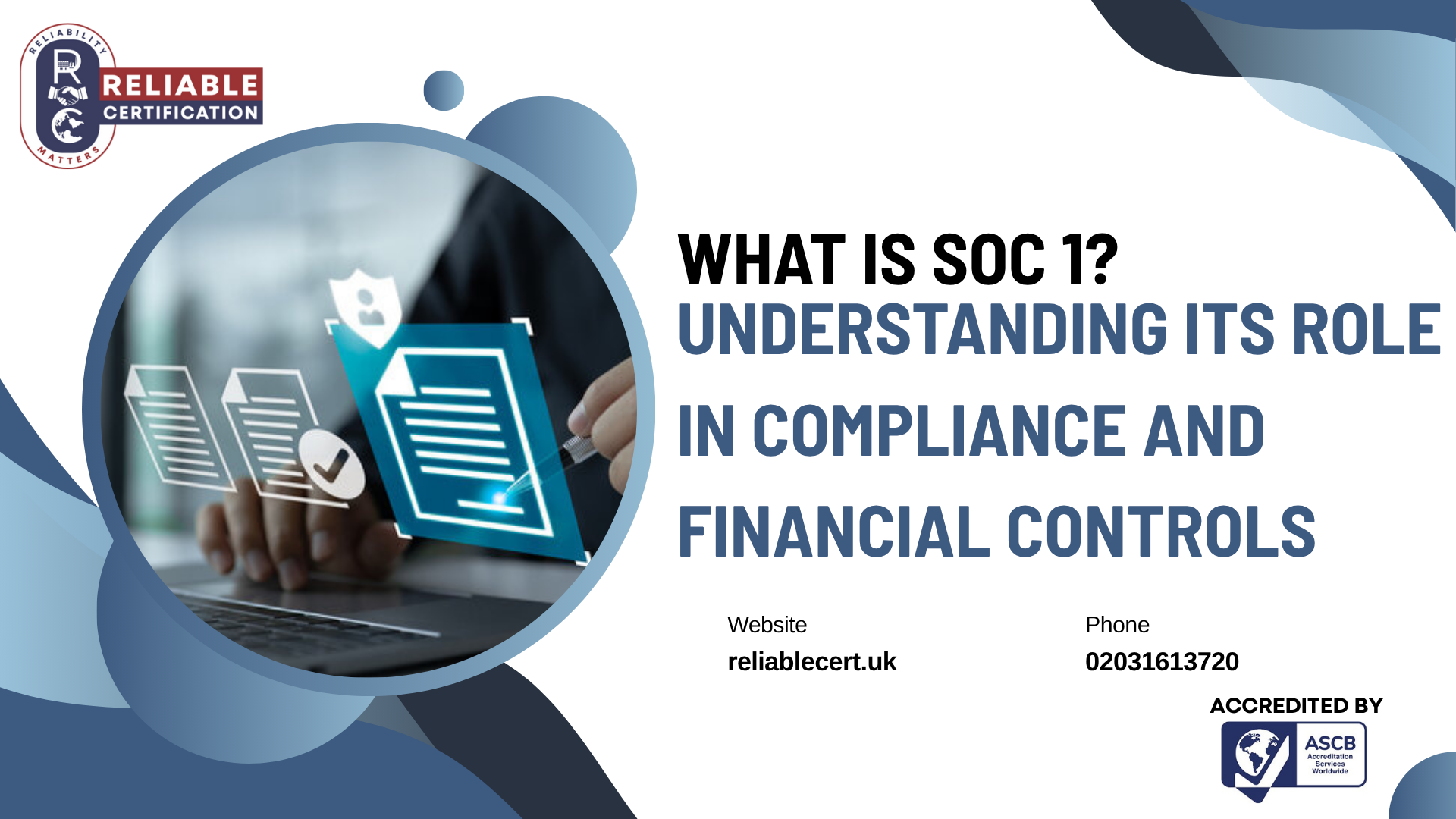Learn what SOC 1 certification is, its audit process, Type 1 vs Type 2 reports, and how it supports compliance for service organizations and financial controls.

In today’s business environment, trust and transparency are essential, especially for service organizations that handle financial transactions or data on behalf of clients. This is where SOC 1 certification plays a critical role. But what exactly is SOC 1? How does it relate to financial reporting, and what does it mean for your organization’s compliance posture?
This blog explores the fundamentals of SOC 1, the types of SOC 1 reports, its importance in regulatory compliance, and how it compares or aligns with ISO standards. Whether you're preparing for a SOC 1 audit, looking for SOC 1 audit services, or just exploring your compliance options, this guide will provide the clarity you need.
SOC 1 (System and Organization Controls 1) is a reporting framework developed by the American Institute of Certified Public Accountants (AICPA). It focuses on the internal controls over financial reporting (ICFR) for service organizations.
In simple terms, if your company provides services that affect your client’s financial statements—like payroll processing, accounting software, or billing systems then a SOC 1 report helps prove that your systems are trustworthy, accurate, and secure.
For service organizations, especially those that deal with financial processes or sensitive data, trust is non-negotiable. Clients want assurance that your systems are designed to operate reliably and protect their financial interests.
A SOC 1 audit demonstrates that you have controls in place to ensure data integrity, reduce risk, and support financial accuracy.
A SOC 1 report gives clients confidence and may even be a requirement in contracts.
There are two types of SOC 1 reports, each serving a different purpose:
Both SOC 1 Type 1 and Type 2 are important depending on your organization’s stage, client demands, and regulatory landscape.
There’s often confusion between the terms “certification” and “compliance” when it comes to SOC 1.
Think of it as a seal of approval that your systems are designed and operated in a way that supports your clients’ financial reporting needs.
A SOC 1 auditor is a certified public accountant (CPA) or auditing professional accredited to conduct SOC 1 assessments. Their role includes:
Hiring a reputable SOC 1 audit firm is critical, as their credibility directly impacts how your report is perceived by clients and regulators.
Implementing and maintaining SOC 1 standards offers several advantages:
Your clients want assurance that their financial data is safe. A SOC 1 report gives them peace of mind.
Many larger corporations and financial institutions require their vendors to provide a SOC 1 report as part of due diligence.
Preparing for a SOC 1 audit forces you to review, strengthen, and document your internal processes.
You’ll identify gaps and mitigate risks that could otherwise lead to data leaks, errors, or compliance failures.
While SOC 1 certification is separate from ISO standards, they can complement each other in a broader compliance strategy:
|
SOC 1 |
ISO 27001 (for example) |
|
Focuses on financial controls |
Focuses on information security management |
|
Issued by a CPA firm |
Certified by an ISO-accredited body |
|
Type 1 and Type 2 available |
One standard with continuous improvement |
|
More common in the U.S. |
Used globally across all industries |
If your organization seeks comprehensive coverage across security, privacy, and financial control, then aligning SOC 1 compliance with ISO certifications can be very beneficial.
👉 You can explore more about ISO standards on the official ISO website here: https://www.iso.org/standards.html
Here are the basic steps involved in preparing for a successful SOC 1 audit:
Identify systems, processes, and departments involved in financial reporting.
Evaluate current controls and identify gaps.
Ensure policies, procedures, access logs, and risk assessments are well-documented.
Choose a reliable and experienced SOC 1 auditor with relevant industry knowledge.
For Type 1, this is a snapshot; for Type 2, expect control testing over a defined time.
Use your SOC 1 report to enhance credibility with stakeholders and clients.
Your SOC 1 audit services provider should:
Working with a trusted partner ensures your SOC 1 report is accurate, timely, and valuable.
If your service organization processes, hosts, or manages data that impacts financial reporting for clients, then SOC 1 compliance is a must. Whether you’re just starting out or scaling your operations, investing in SOC 1 audit services helps protect your business and build lasting trust with clients.
SOC 1 may not be an “ISO certification,” but it plays an equally critical role in your overall governance, risk, and compliance strategy. And in today's environment of increasing audits, regulations, and client expectations, that assurance is more important than ever
Typically replies within 30 minutes